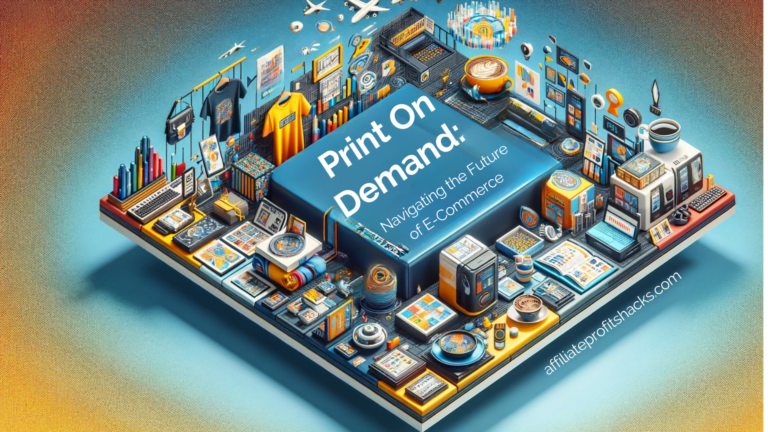Quantum Financial System: Revolutionizing Modern Finance
Welcome and thank you for checking out my article about the Quantum Financial System and how it is revolutionizing the modern financial system.
In the world of finance, a groundbreaking change is on the horizon, thanks to the Quantum Financial System. This system represents a significant leap from traditional financial methods, introducing concepts rooted in advanced technology. Unlike the financial frameworks we’ve known, the Quantum Financial System operates on the principles of quantum computing. This technology is not only faster, but also more secure and efficient, offering a new perspective on how we handle financial transactions and policies.
Best Recommended and Proven Way to Make Money Online – Click HERE for Instant ACCESS >>

The idea of a Quantum Financial System first emerged as a response to the limitations of current financial systems. Traditional methods often struggle with issues like security breaches and slow transaction speeds. However, with quantum computing, these challenges are being addressed in innovative ways. Quantum technology brings a level of security that is nearly impossible to breach, which is essential in a world where digital transactions are becoming more common.
Moreover, the Quantum Financial System opens up new possibilities for global economic interactions. It has the potential to transform how we engage in international trade, manage currencies, and even predict economic trends. This system isn’t just about improving efficiency; it’s about reshaping the financial landscape on a global scale.
However, embracing this new system comes with its own set of challenges. Understanding and implementing quantum technology in finance requires specialized knowledge and infrastructure. There are also important ethical and security concerns to consider. Despite these challenges, the push towards a Quantum Financial System continues, driven by the promise of a more secure and efficient financial future.
As we delve deeper into this exciting development in finance, it’s crucial to understand its foundations, implications, and potential. The Quantum Financial System isn’t just a technological upgrade; it’s a stepping stone towards a new era in the financial world, one that could redefine how we view and manage money.
The Mechanics of Quantum Finance
Diving into how the Quantum Financial System operates, it’s essential to understand the role of quantum computing in this groundbreaking change. Unlike traditional computing, which relies on bits (0s and 1s) for processing information, quantum computing uses quantum bits or qubits. These qubits can exist in multiple states simultaneously, enabling them to process vast amounts of data at incredible speeds. This is the core technology that powers the Quantum Financial System, making it vastly more efficient than existing financial systems.
But efficiency is just one part of the story. Quantum finance also brings an unprecedented level of security. In the digital age, where financial transactions are increasingly online, security is a top concern. Quantum computing introduces complex algorithms that are practically impossible to hack with current technology. This means that quantum financial systems can secure data and transactions in ways that were previously unimaginable.
The differences between quantum and traditional financial systems don’t stop at speed and security. Quantum finance has the potential to revolutionize various aspects of the financial industry. From high-speed trading to complex risk analysis, quantum computing can handle tasks that are currently challenging or impossible for traditional systems. This could lead to more accurate financial forecasting, faster transaction processing, and a new level of sophistication in financial modeling.
However, implementing such advanced technology in the real world is not without its challenges. The current infrastructure of the financial industry needs significant upgrades to accommodate quantum systems. Additionally, there’s a steep learning curve in understanding and operating these systems. Financial institutions will need to invest in training and development to fully leverage the benefits of quantum finance.
As we progress, it becomes clear that the Quantum Financial System is not just an incremental improvement but a complete overhaul of how financial transactions and services will be conducted in the future. It promises a world where finance operates at the speed of light, with robust security and innovative capabilities that could reshape the global economy.
Quantum Finance’s Global Economic Impact
The advent of the Quantum Financial System is not just a technological milestone; it’s set to have a profound effect on the global economy. This system introduces a new era in international finance, where transactions can occur at unprecedented speeds and with greater security. This has significant implications for global trade and the way countries interact economically.
One of the key benefits of quantum finance is its potential to enhance international trade. The speed and efficiency of quantum computing can streamline cross-border transactions, reducing the time and cost involved in these processes. This could lead to a more interconnected global economy, with smoother trade relations and increased economic growth opportunities for countries worldwide.
Moreover, the Quantum Financial System could play a crucial role in shaping monetary policies and financial regulations. As it provides more accurate and rapid processing of economic data, governments and financial institutions can make better-informed decisions. This could mean more effective monetary policies and financial regulations that are responsive to the changing dynamics of the global economy.
However, the shift to quantum finance also brings challenges, especially in terms of global economic equality. Not all countries have the same level of access to quantum technology, which could lead to a widening economic divide. It’s crucial for the international community to address these disparities to ensure that the benefits of quantum finance are shared globally.
Another important aspect is the impact of quantum finance on financial stability. The introduction of such a powerful system could lead to significant shifts in financial markets. Regulators and financial institutions will need to adapt to manage the potential risks associated with these changes, ensuring a stable and secure global financial environment.
The Quantum Financial System is more than a new technology; it’s a catalyst for reshaping global economic structures. Its implementation will require careful consideration of its impacts on international trade, monetary policies, and economic equality. The potential benefits are immense, but they must be balanced with a mindful approach to the challenges and risks involved.
Challenges in Quantum Financial Systems
While the Quantum Financial System heralds a new age in finance, it’s important to acknowledge the hurdles that come with such a revolutionary change. These challenges range from technical complexities to ethical considerations, each playing a critical role in the system’s implementation and acceptance.
Firstly, the technical challenges are significant. Quantum computing, the backbone of this system, is a field that is still in its developmental stages. Unlike traditional computing, quantum technology requires specific environmental conditions to function optimally, such as extremely low temperatures. This makes the technology not only expensive but also difficult to maintain. Financial institutions looking to adopt this system must be prepared for substantial investments in both infrastructure and expertise.
Security, although enhanced by quantum computing, remains a complex issue. The quantum financial system introduces new forms of encryption that are much stronger than current standards. However, as quantum computing becomes more widespread, the risk of quantum-level hacking increases. This means that quantum encryption needs constant evolution to stay ahead of potential quantum computing threats.
Moreover, there’s an ethical dimension to consider. The quantum financial system could lead to significant shifts in the financial sector, potentially rendering many existing jobs and skills obsolete. This raises questions about the future of employment in finance and the ethical responsibility of institutions to manage this transition in a way that minimizes negative impacts on their workforce.
Another challenge lies in the global accessibility of quantum finance. Currently, quantum computing technology is not widely available and is mostly limited to advanced economies with substantial technological investments. This could create a divide in the financial capabilities of different countries, potentially exacerbating economic inequalities.
While the Quantum Financial System offers numerous benefits, its successful integration into the global financial landscape requires navigating through a series of technical, security, ethical, and accessibility challenges. Addressing these issues is crucial for realizing the full potential of this revolutionary financial system.
Quantum Finance: Looking Ahead
As we peer into the future of the Quantum Financial System, it’s clear that this innovation holds immense potential for transforming finance. This section explores the emerging trends in quantum finance and makes predictions about its impact on businesses and individuals.
Best Recommended and Proven Way to Make Money Online – Click HERE for Instant ACCESS >>
The most immediate impact of quantum finance will likely be seen in the field of financial analytics. Quantum computers, with their ability to process vast amounts of data at incredible speeds, are poised to revolutionize how financial markets are analyzed. This means more accurate predictions, real-time risk assessments, and a more profound understanding of market dynamics. For businesses, this translates into better-informed investment decisions and a competitive edge in the market.
Another area where quantum finance is set to make waves is in the realm of personal finance. Quantum-powered systems could offer individuals more sophisticated financial planning tools, providing previously inaccessible insights. This could lead to more personalized and efficient financial advice, helping people to manage their finances more effectively.
Emerging trends also indicate a shift towards more integrated global financial systems. With the enhanced speed and security provided by quantum computing, international financial transactions can become more seamless. This interconnectedness could foster a more cohesive global economy, with easier access to international markets for businesses and individuals.
However, it’s not just about the technological advancements. The future of quantum finance also hinges on ethical considerations and regulatory frameworks. As the technology develops, there will be a growing need for regulations that address the unique challenges posed by quantum finance. This includes ensuring fair access to these advanced systems and safeguarding against potential misuse.
The trajectory of quantum finance is promising, with potential benefits extending across various sectors of the economy. From transforming how financial markets operate to enhancing personal financial management, the Quantum Financial System is set to redefine the financial landscape. However, realizing this potential will require a balanced approach that considers both the technological possibilities and the ethical and regulatory implications.
Security and Privacy in Quantum Finance
The implementation of the Quantum Financial System brings a new dimension to the concepts of security and privacy in the financial world. This section explores the enhanced security measures offered by quantum computing and addresses the privacy concerns associated with these advancements.
One of the most significant contributions of quantum finance to security is quantum cryptography. This form of cryptography uses the principles of quantum mechanics to secure data, making it virtually impossible for hackers to breach without detection. Quantum encryption methods, such as quantum key distribution, ensure that any attempt to intercept data changes its quantum state, thus alerting the system to the breach. This level of security is a game-changer for financial transactions, where the risk of cyber-attacks is ever-present.
However, with these advanced security measures come new challenges in privacy. The Quantum Financial System’s ability to process and analyze vast amounts of data raises concerns about individual privacy. There is a potential risk that personal financial information could be accessed or used in ways that breach privacy norms. Therefore, alongside developing robust security protocols, it is equally important to establish strict privacy regulations. These regulations should ensure that personal data is protected and used ethically, maintaining the trust of individuals in the system.
Moreover, as the technology evolves, so do the methods of potential cyber-attacks. The financial sector must remain vigilant and continuously update its security measures to stay ahead of these evolving threats. This includes investing in research and development to anticipate future security challenges in the quantum era.
While the Quantum Financial System offers unprecedented security advantages, it also necessitates a careful balance between advanced security measures and the protection of individual privacy. The future of quantum finance will depend heavily on how effectively these challenges are addressed and how well the financial sector adapts to these new security paradigms.
Making Quantum Finance Accessible and Inclusive
The Quantum Financial System, with its advanced capabilities, holds great promise for the future of finance. However, ensuring its accessibility and inclusivity on a global scale is crucial for harnessing its full potential. This section discusses the steps needed to bridge the digital divide in finance and the impact of quantum technology on developing economies and financial inclusion.
Quantum finance, by its nature, is a highly advanced field, requiring significant technological infrastructure and expertise. This poses a challenge in terms of global accessibility, as not all countries currently have the resources or knowledge to implement such systems. To address this, there needs to be a concerted effort to share knowledge and resources more broadly. This can include international collaborations, training programs, and partnerships between developed and developing nations. By doing so, the benefits of quantum finance can be extended beyond the borders of technologically advanced countries.
The impact on developing economies is another critical consideration. Quantum finance offers opportunities for these economies to leapfrog traditional financial systems, directly adopting cutting-edge technology. This can lead to more efficient financial markets, improved access to international capital, and better financial services for the population. However, it also requires careful planning and support to ensure that these economies can integrate quantum finance in a way that supports sustainable growth.
Financial inclusion is an essential aspect of this discussion. The Quantum Financial System has the potential to provide more accessible financial services to underserved populations. For example, quantum-powered mobile banking could offer secure and efficient financial services to people in remote or rural areas. This could significantly reduce barriers to financial access, helping to lift people out of poverty and stimulate economic development.
Best Recommended and Proven Way to Make Money Online – Click HERE for Instant ACCESS >>
While the Quantum Financial System presents a revolutionary step forward in finance, its success and impact will largely depend on how it is made accessible and inclusive. Efforts to bridge the digital divide, support developing economies, and enhance financial inclusion will be key in realizing the full promise of quantum finance for everyone, regardless of their geographic or economic status.
Quantum Computing in Financial Forecasting
Quantum computing’s integration into the financial sector marks a significant turning point, especially in the realm of financial forecasting. This section examines how quantum computing is reshaping predictive analytics in finance and explores case studies in stock market forecasting and risk assessment.
The cornerstone of quantum computing in finance is its unparalleled computational power. Traditional computing systems, even the most advanced ones, are limited in their ability to process complex financial models and large datasets quickly. Quantum computing, on the other hand, can analyze vast amounts of financial data in a fraction of the time. This capability enables financial analysts to make more accurate predictions and conduct thorough risk assessments with a level of detail previously unattainable.
In stock market forecasting, quantum computing is revolutionizing the way investors and financial institutions make decisions. By processing complex algorithms and diverse data sets at incredible speeds, quantum computers can predict market trends and fluctuations more accurately. This leads to more informed investment strategies, potentially reducing risks and increasing returns.
Risk assessment is another area where quantum computing is making significant strides. In finance, risk assessment involves analyzing various factors that could impact investments, such as market volatility, economic shifts, and geopolitical events. Quantum computing can evaluate these factors simultaneously, providing a comprehensive risk profile much faster than traditional methods. This allows financial institutions to respond more swiftly to changing market conditions, safeguarding investments and capital.
Furthermore, the predictive power of quantum computing extends beyond traditional finance. It has the potential to play a vital role in emerging fields like environmental, social, and governance (ESG) investing. By analyzing complex ESG data, quantum computing can help investors identify sustainable and socially responsible investment opportunities, aligning financial goals with ethical considerations.
Quantum computing is not just a technological advancement; it’s a transformative force in financial forecasting. Its ability to process complex data rapidly and accurately opens up new horizons in stock market analysis, risk assessment, and responsible investing. As this technology continues to evolve, its impact on the financial sector will likely grow, offering new opportunities and challenges in the world of finance.
Conclusion: The Quantum Financial System — A Paradigm Shift in Finance
As we reach the end of our exploration into the Quantum Financial System, it’s clear that we stand on the brink of a major shift in the world of finance. This system, powered by the incredible capabilities of quantum computing, promises to revolutionize how we approach financial transactions, forecasting, and global economic participation.
The Quantum Financial System offers remarkable improvements in efficiency and security over traditional financial systems. Its ability to process vast amounts of data at unprecedented speeds paves the way for more accurate financial forecasting and decision-making. The enhanced security features brought about by quantum cryptography are set to redefine the standards of financial data protection. This will offer a level of security previously thought unattainable.
However, as with any groundbreaking technology, the path to integrating the Quantum Financial System is filled with challenges. The technical complexity and ethical considerations, alongside the need for substantial investments in infrastructure and training, pose significant hurdles. Furthermore, the global accessibility and inclusivity of this system are critical issues that must be addressed to ensure its benefits can be enjoyed by all sectors of the global economy.
Looking ahead, the potential of the Quantum Financial System is vast. It holds the promise of a more interconnected global financial landscape, where transactions are not only faster and more secure but also more accessible to different parts of the world. It also offers the prospect of more equitable financial participation, as quantum-powered tools could provide enhanced financial services to underrepresented and underserved communities.
The Quantum Financial System represents more than just technological advancement; it signifies a new era in the world of finance. While the journey to fully realize its potential is likely to be complex and challenging, the rewards could be transformative, reshaping our understanding and interaction with the global financial ecosystem. As this technology continues to develop, it will undoubtedly continue to spark discussions, innovations, and transformations in the financial world.
Best Recommended and Proven Way to Make Money Online – Click HERE for Instant ACCESS >>
Thank you for taking the time to read my article “Quantum Financial System: Revolutionizing Modern Finance”. I hope that you found value in it!
You might also find this related article about Digital Assets interesting.







